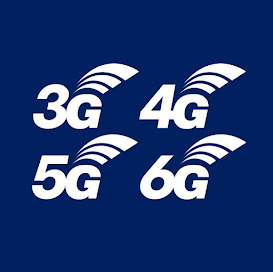 In the past year or so Android has shown its credentials and it can be said we are going to see lots of devices based on Android as a platform.
In the past year or so Android has shown its credentials and it can be said we are going to see lots of devices based on Android as a platform.If I don’t want to be too pedantic then Android is a software platform for mobile devices, powered by the Linux kernel, initially developed by Google and later the Open Handset Alliance. It allows developers to write managed code in the Java language, controlling the device via Google-developed Java libraries. Applications written in C and other languages can be compiled to ARM native code and run, but this development path is not officially supported by Google.
Android platform was first unveiled on 5 November 2007 in conjunction with the announcement of  the founding of the Open Handset Alliance, a consortium of 48 hardware, software, and telecom companies devoted to advancing open standards for mobile devices. Google released most of the Android code under the Apache license, a free-software and open source license.
the founding of the Open Handset Alliance, a consortium of 48 hardware, software, and telecom companies devoted to advancing open standards for mobile devices. Google released most of the Android code under the Apache license, a free-software and open source license.
Since the above has taken place a lot has been developed on Android platform in terms of notebooks and mobile phones.
For instance recently Acer said it will produce netbooks based on Google's Android platform. Undoubtedly Android will contribute "significantly" to the growth of the global netbook market just like it will for the Smartphones. The company also revealed that its first Android-based handset would be available in the fourth quarter. Acer had confirmed it would produce an Android phone this year, but had not given a specific time frame.
In other Android news, Garmin-Asus, the smartphone partnership announced in February, said it would produce its first Android phone no later than the first quarter of 2010.
Based on the above developments together with some other, Google’s bullishness is increasingly becoming evident about the growth prospects for Android. Google envisage that that by the end of the year there will be at least 18 handsets on the market running on Android. According to Google this number does not include handset makers using the basic version of Android that have not notified Google of their plans.
Handset manufacturers that have committed to producing Android phones this year include Acer, HTC, Huawei, LG, Motorola and Samsung.
Indeed, the ramping-up of Android phones intensifies a battle among some of the world’s biggest software companies to create the operating system for the world’s phones. Android goes up against  a coming-soon new version of Microsoft’s mobile version of Windows; Apple’s proprietary iPhone system; the BlackBerry platform; a new Palm OS for its Pre, called WebOS; Symbian (mostly proferred by Nokia); and a host of Linux-based systems.
a coming-soon new version of Microsoft’s mobile version of Windows; Apple’s proprietary iPhone system; the BlackBerry platform; a new Palm OS for its Pre, called WebOS; Symbian (mostly proferred by Nokia); and a host of Linux-based systems.
Googles Android has certainly added to the competition which is good for the customers but indeed has given sleepless nights to the likes of Microsoft, Nokia etc. Android has unquestionably won accolades as new alternative software for smartphone makers. The first Smartphones with Android on board came out in the
I guess the future of application development is going to get even more interesting.



 In the past week there has been a lot of development in the filed of smartphones. Telecomm giants especially in America are gearing up for a fight to launch the best phones in the market.
In the past week there has been a lot of development in the filed of smartphones. Telecomm giants especially in America are gearing up for a fight to launch the best phones in the market.